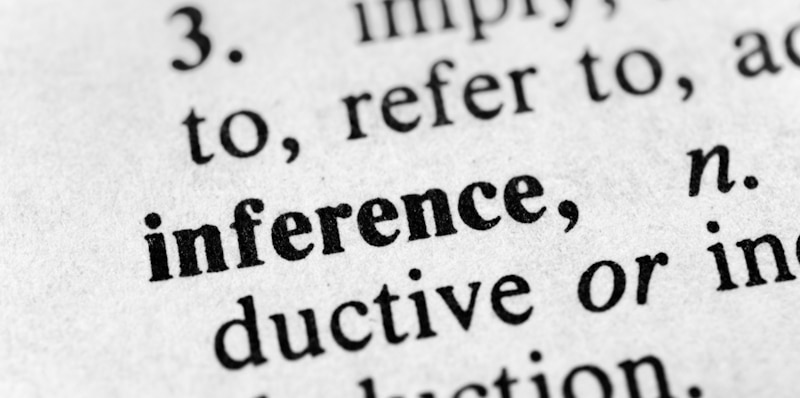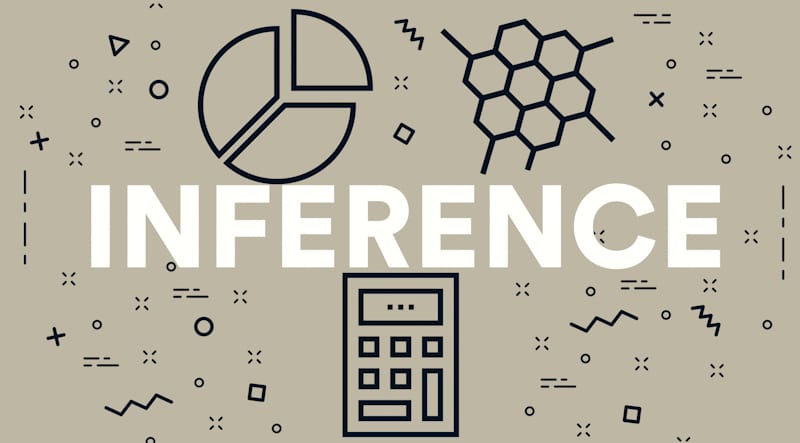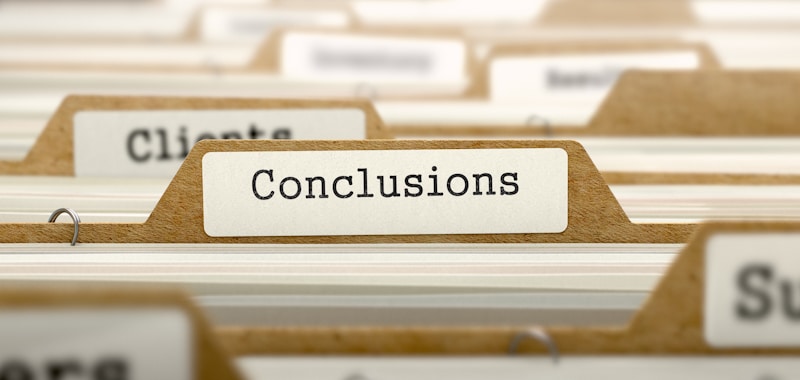Reading is not just going through texts and absorbing the information. It’s also about reflecting on the thing you perused or learned. In other words, it’s imperative to have a unique perspective of what you waded through – in other words, “inferred”.
“Inference” refers to “reasoning”. It’s “assuming based on logic and facts”. “Inference” is similar to but not the same as “conclusion”, “conjecture”, etc. “Inferring” is integral to sound reading as it helps with comprehension. Knowing the term’s meaning well is key to using it correctly in texts.
As mentioned above, knowing the meaning of “inference” is imperative to learn how to use the word writing. Therefore, this article takes a deep-dive approach toward that, lists out the sentences with the word “inference” for even better understanding, and lots more.

“Inference” – Meaning
The word “inference” is a noun that denotes “something is inferred”. In other words, “inference” means “an opinion or conclusion formed based on available evidence or known facts coupled with prior experience”. Not everything in life is learned first-hand. A lot of the knowledge one acquires is likely through “inference”.
Based on the context or subject, “inference” could mean different things. The noun “inference”, for instance, refers to an “intellectual process”. The scientific definition denotes “an educated conjecture made via observation”.
In the context of literature, “inference” signifies “the clues the author provides to their readers to ascertain things”. In reading comprehension, “inference” is an integral aspect. You could use the provided context to ascertain things about the story’s settings, characters, plot, etc.
In everyday life, people use specific indications to derive conclusions. The inferences made help with making decisions about things, such as “how you’ll act”, “what you’ll say”, “what your assumptions would be like”, etc., in a given context.
For example, if a baby is crying, the mother working in the kitchen could infer her baby got scared or hurt by something. Similarly, if you hear a police siren, you immediately conclude that some crime has occurred in the neighborhood.
Synonym words or terms related to “inference” include “illation”, “conclusion”, “deduction”, and “consequence”, to mention a few.
Inferences Could Be Incorrect
Since “inference” or the process of inferring things is essentially looking at the facts carefully and concluding things, there’s always the possibility of making wrong inferences.
For example, if you hear someone recently moved to the United States from Kenya, you will automatically assume the person to be a black guy. And that’s without considering the possibility that the individual could be a white person who moved to Kenya for work before shifting base to the U.S.
How is “Inferring” Different from “Predicting”
“Predicting” states what could happen in the future based on what’s already known and apparent. “Inferring”, on the other hand, is more of “enquiring” to learn or ascertain what a particular thing means.
For example, if you’re reading a passage of text that discusses a character getting ready for her first day of university, you automatically “infer” the person’s age, outfit, etc. That’s “inferring” through texts.
In other words, a “prediction” focuses primarily on the “what”, while “inference” is mainly about the “why”. Not to mention, making “inferences” helps understand a particular concept in a better way.
Difference Between “Inference” and “Observation”
“Observation” is a noun that is also quite similar in meaning to “inference”. However, the two terms do not mean exact things. It instead denotes “something you see, witness, or notice”. Unlike “inference”, “observation” is not necessarily an active process. It doesn’t entail putting together varied pieces of evidence and arriving at a conclusion on that basis.
Difference Between “Inference” and “Deduction”
“Deduction” is the noun form of the verb “deduce“. “To deduce” means “to conclude or reason”. It also means “to infer”. “Deduction” is a “type of inference” alongside “induction”.
The term is commonly used in cases wherein the reasoning is based on formal implication rules instead of model-theoretic or semantic considerations. Compared to “deduction”, “inference” is a more generalized word that encompasses both non-deductive and deductive reasoning types.
Difference Between “Inference” and “Conclusion”
An “inference” is not the final step in decision-making or analysis – but a “conclusion” is. For a statement to be considered a “conclusion”, it should be a logically derived description, and it must not have been “inferred” from a given observation. In other words, a conclusion isn’t an “educated guess” that an “inference” usually is. The two are similar because both entail ascertaining a thing that isn’t stated explicitly in a given text.
The Significance of Drawing “Inference”
According to several research studies, active, thoughtful, proficient readers are likely to have increased cognition. They tend to be “metacognitive” or develop thinking about their thinking while reading. They can detect why and when the meaning of a particular text is not clear to them and employ different strategies to deepen their knowledge or interpretation of the text or solve comprehension issues.
Proficient readers employ textual information and their prior knowledge to make critical judgments, draw conclusions, and form unique perspectives from the text. Inferences could occur as “predictions”, “conclusions”, or “fresh ideas”.
Teaching Kids to Infer or Stretching Their Thinking
Teaching young kids to guess things they don’t know entirely or with limited information is an effective ploy to boost their thinking/analytical skills. Training students to employ the technique would lead to improved comprehension and the satisfaction of having learned something.
How to help stretch student thinking? Let your students share multiple interpretations while reading fiction. The physical environment must be a non-critical and safe place for them to share their prior knowledge.
Use multiple genres to exercise the “act of inferring”. When reading non-fiction, the space to make inferences is small. Discuss how the conclusions and inferences are distinct when reading poetry, scientific texts, historical documents, novels, etc. Give students the space to justify their interpretations, communicate which portions of the content they used to gain facts, and their background knowledge that helped them infer things.
Instruct the students to write a paragraph that comprises inferred facts and actual data. Make them exchange their copies and make inferences using the information in those shared paragraphs.
For younger students, you could create some questions relating to a text, put them in groups or pairs, and let the teams work to fulfill the activity.
Using the Word “Inference” in Texts
The key to using the term “inference” in texts is to understand what the word means. Since the word is not as commonly used a term as “conclusion”, “observation”, “assumption”, etc., it’s not that difficult to incorrectly use it in texts instead of its related terms.
As discussed earlier, “inference” is not the same as “observation”, “deduction”, “conclusion”, etc. By switching the terms, you risk slightly or significantly changing the meaning of a given sentence or text.
Here are a few example sentences with the word “inference”:
- They exhibited how to be acute in an investigation, precise with notation, and sensible in inference.
- From the data gathered, the scientists could make inferences that the liquid was impure and not fit for the chemical process.
- The only inference we could make from the long queue outside the store was that some new product launched, and the hardcore fans couldn’t wait to get their hands on it.
The following are a few sentences with the verb form of “inference”:
- Based on the plant’s high emissions levels, people inferred that the factory was not honoring the carbon footprint treaty.
- The athlete didn’t appreciate the media inferring his retirement due to his poor show in the last couple of seasons.

Example Sentences with the Term “Inference”
The following is another list of sentences incorporating the word “inference” to help you ascertain how and when to use the word in texts:
- Though there are no managed clinical trials studying obesity’s effects on people, you can make some animal research inferences.
- Science is primarily based on inference because you cannot see past events directly or not everything that happened before has a visual record.
- The writer drew inferences from things that were widely known and accepted.
- Its existence has been determined purely based on inference.
- The software tool employs past purchase records to draw inferences about what customers would likely purchase in the future.
- Are these facts information enough to draw meaningful inferences?
- From looking at his profile, what inference could you possibly draw about his past?
- Since there were no data to use, the committee did not make any budget-related inferences.
Conclusion
“Inference” might seem like a more intellectual term, but it’s something that everybody does at some point and level in everyday life. People “infer” things without realizing the same. Therefore, “inference” is not as common a term as “observation”, “conclusion”, “assumption”, etc., are. Quite a few people also do not clearly understand the term or only have a vague idea of it.
If you are one of those not particularly familiar with “inference”, this article would have hopefully afforded you the necessary information and perspectives and cleared all your doubts regarding usage in texts. Going forward, you should hopefully be able to make your own “inferences” when reading a book or a magazine, talking to people about things, etc.
Shawn Manaher is the founder and CEO of The Content Authority. He’s one part content manager, one part writing ninja organizer, and two parts leader of top content creators. You don’t even want to know what he calls pancakes.


